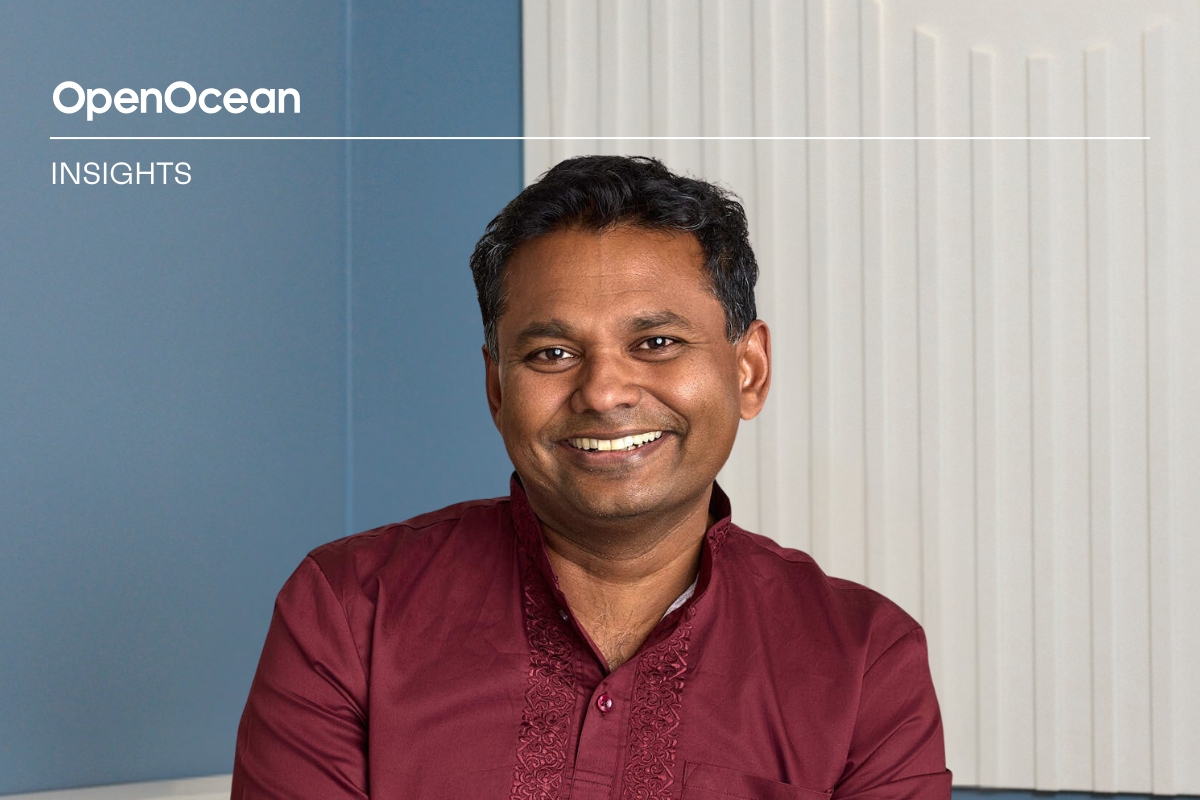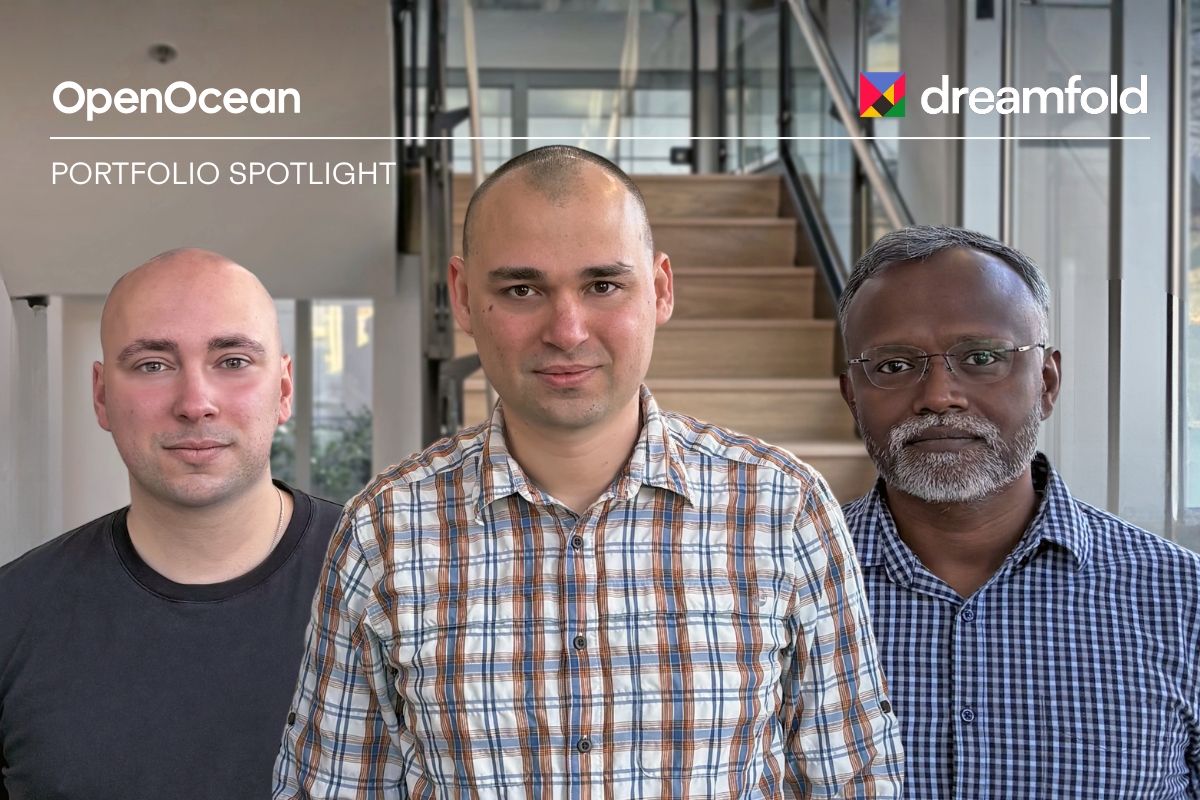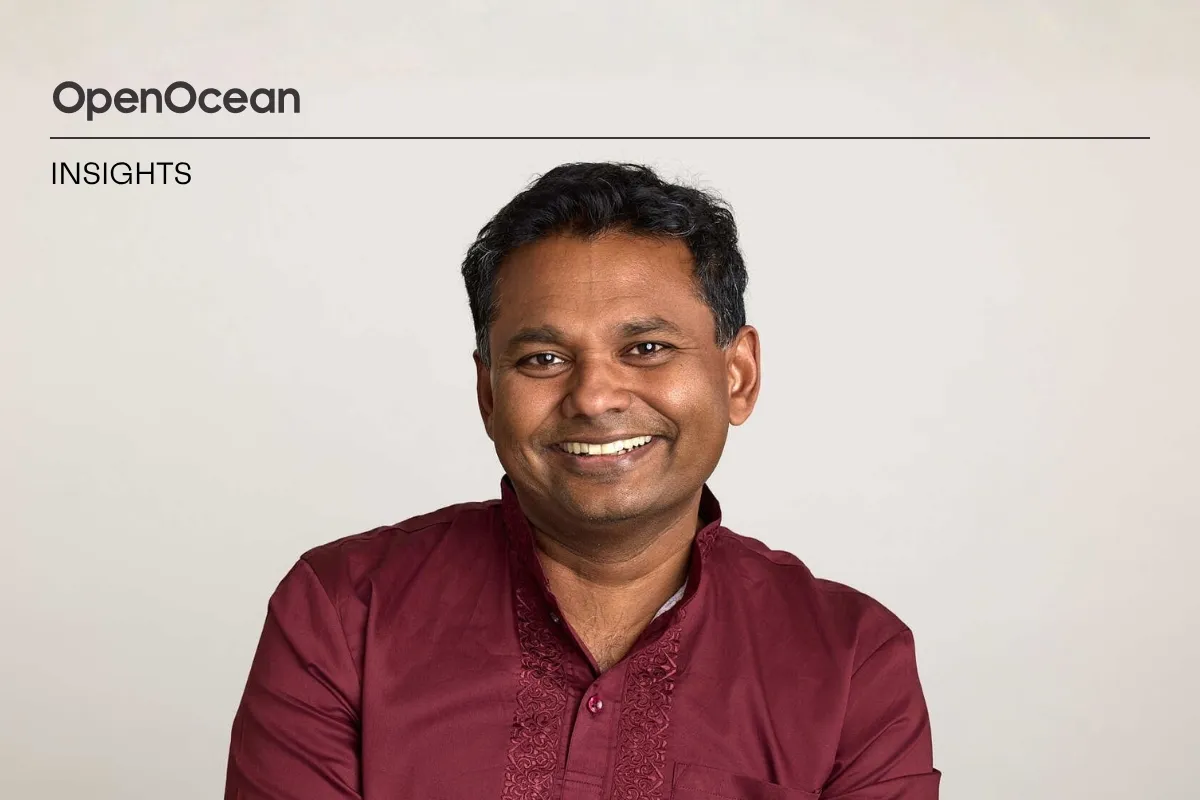
When we met Jan Goetz, Professor Mikko Möttönen and the rest of the IQM founding team in late 2018, we knew we were seeing something rare. The science was hard to grasp, even for my colleague Patrik Backman, who had studied physics and some quantum theory, but the ambition was unmistakable. It was clear from the start that if they succeeded in building working superconductive quantum computers, they could transform how the world tackles problems too complex for even the largest supercomputers.
We debated for a while whether software- and data-focused OpenOcean should invest in a hardware startup, even one with unique world-class IP and a strong founding team. The opportunity proved too compelling to miss, so we invested in a syndicated seed round in 2019. Six years later, IQM has grown from a university spin-out into a European leader in quantum technology with top-tier technology and a serious business.
I’ve shared the stage with Jan twice this year already at European tech events, and we’ll do it again at Web Summit in Lisbon this November. In this post, I want to highlight the key themes we’ve explored and the main lessons I’ve taken from those conversations. IQM’s story is a clear example of what Europe can achieve, and where we need to keep our focus.
1. Quantum is a global race
Quantum computing is no longer a distant bet. It’s a global race among the US, China, and Europe to build machines capable of solving problems that traditional computers would take years or even thousands of years to crack. From climate modelling to new materials, and from the travelling salesperson problem cracking in logistics to energy optimisation, the stakes are massive. The global quantum computing market is projected to expand from €848 million in 2023 to €100 billion by 2040. The question is how meaningful a share Europe can claim.
2. Europe’s opportunity and challenge
Europe has clear strengths: a deep research base, strong talent, and cross-border collaborations such as the French–Dutch–German quantum programme. But the funding landscape lags behind. EuroStack reports an estimated €375 billion shortfall in growth-stage deep-tech funding compared with the US, and about half of Europe’s growth capital comes from outside the continent.
Speaking to Jan about this, he captured the reality of scaling a tech startup here: “It’s never easy to get funding for a startup, and especially in Europe in this deep tech hardware space. You need to become a little bit creative.” For IQM, it meant combining venture capital, life-science investors, family offices and government equity, from Finnish and German state funds to EU instruments like the EIC and EIB. It meant a more fragmented cap table, but now having raised around USD 600 million, it worked out at the end.
Public procurement is also a lever we need to pull harder. The European High-Performance Computing Joint Undertaking shows how large-scale buyers can accelerate adoption. Moving from research-driven policy to innovation and competitiveness is the crucial next step.
3. Why IQM matters
To this day, IQM has raised more than €600 million and employs over 300 people from 50 nationalities in its Helsinki-based headquarters and across Europe and the globe. Unlike many peers still in pure research, IQM ships full-stack quantum computers and runs its own chip factory, assembly line, and cloud service.
Talking to Jan, he told me, “the most important point is that we can produce full-stack systems, working computers, and deliver them—and they work.” Their hardware achieves higher clock speeds and longer qubit lifetimes than most competitors, and their error-correction codes are up to twenty times more efficient than standard approaches. IQM is now the global market-share leader in delivered quantum systems, with new orders totalling a strong €94 million in the first half of 2025.
4. Lessons from scaling IQM
A. Science first, execution from day one
IQM built its own chip factory and assembly line early, letting it deliver real products while others stayed in the lab. This added to early capital requirements and risk, but as a result, the company managed to partner with initial customers and generate real revenues earlier than perhaps many expected.
B. Talent follows mission
Before the seed round closed, nearly twenty quantum physicists had already committed. “We jumped over the very initial phase of building a company,” Jan recalled. Today, more than 300 people from over 50 countries work across disciplines. A top team solving the world’s hardest problems attracts top talent globally to almost any location.
C. Blend public and private capital
Quantum computing requires patient money, and lots of it. Alongside venture funds like ours, IQM brought in life-science investors comfortable with long timelines and secured national-level and EU funding. With the recent $320 million financing, the company is now well capitalised for the medium term, but will need to raise much more over the long term to make quantum advantage a reality.
D. Partnership matters
For us at OpenOcean, investing in IQM was more than writing a cheque. We stayed close as they scaled, sharing the long view on talent, capital, and market timing. Deep tech is a marathon, and trust between founder and investor makes the difference.
The same goes for how IQM works with its customers as partners. Jan and his team co-develop systems with leading research institutes and industrial buyers, with VTT in Finland as a prime example, so every collaboration feeds directly into the technology roadmap. This close loop between investors, founders and customers speeds up product development and builds trust on all sides. In deep tech, that network of long-term relationships is as vital as the science itself.
5. Current state of quantum and use cases
Quantum computing is already moving beyond the lab. IQM’s systems run daily in research centres and early-stage industry pilots, showing how the technology is starting to create value.
A. AI and quantum feed each other
AI pushes demand for more complex computation, while quantum methods promise faster training and better optimisation. AI tools, in turn, help design and control larger quantum systems.
B. Research
Universities and labs use IQM machines for tasks such as molecular design. We can already reach chemical accuracy with eight-atom molecules and expect to handle molecules with tens of atoms within a few years.
C. Industry pilots
IQM is already collaborating with energy providers on grid optimisation, transport operators on train scheduling and financial institutions on portfolio modelling. These early projects highlight where quantum computing will first complement classical supercomputing in areas such as AI calculation acceleration, logistics and finance.
6. The future of quantum
IQM’s success is a signal for the next wave of European deep tech founders. Quantum advantage, i.e. machines with tens or hundreds of thousands of qubits, will unlock breakthroughs in molecular design, climate modelling, and materials such as better solar cells and fertilisers.
Final words
Backing IQM has been one of the most exciting journeys of my (fairly long) investing career. It shows that when Europe brings together world-class research, diverse talent and the right mix of public and private funding, we can compete at the highest level of global deep tech. The next generation of founders is already out there. Our job is to make sure they have the runway and support to build the future.


